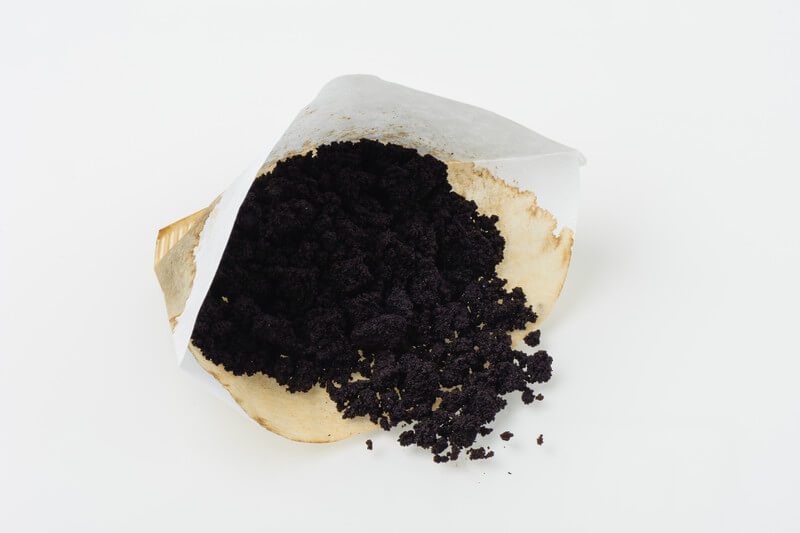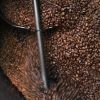A blog for the coffee lovers
Welcome to the PureBean Blog. Stay updated with our latest news & information.

How and Why You Should Recycle Your Used Coffee Grounds

Even if you’re already a big recycler, you may limit your activities to the standard items for garbage disposal like paper, plastic, aluminum, and glass. However, there are myriad other ways to recycle in the home and to reduce your carbon footprint.
For example, did you know that you can recycle the used coffee grounds directly from your home or office coffee machine? If you’re looking to do your part for the health of the planet, here are a few ways to recycle used coffee grounds, as well as reasons to make the effort.
How to Recycle Coffee Grounds
Once you’ve made the decision to recycle your used coffee grounds, the next question to ask is how. You have a few options when it comes to giving new life to your old dispose of coffee grounds.
Compost Coffee Grounds
There is no shortage of ways to recycle used coffee grounds, and composting is one of the best. If you’ve been composting other foods, you may know that it’s important to keep a balance in the nutrients you add to the heap.
Coffee grounds are high in nitrogen. This is not only a healthy property for certain plants (which your compost bins will fertilize down the line), but it could also attract worms that will benefit your compost heap. The only caveat here is that you’ll have to be careful how much coffee you add to your compost bin. Too much nitrogen can throw off the balance of the compost pile and contents, making it harmful to some plants.
Make Home Cleaning Agents
You can use plenty of natural ingredients create home cleaning solvents, including vinegar, baking soda hot water, and lemon juice, just for example. Coffee drinkers can also incorporate used grounds to clean your home the natural way.
For starters, coffee grounds are an excellent natural deodorizer. You can put them into your fridge, freezer, or trash can to soak up food odors. Plus, you can still compost or dispose of them afterwards.
Used grounds are also abrasive, even more so than baking soda. This makes them perfect for tough scouring jobs. Whether you’re attacking stuck-on food goo in your favorite pots and pans or scrubbing stubborn grime on the counter, coffee grounds get the job done. Unfortunately, they can cause staining, so you don’t want to use them on white porcelain or grout.
Around the home
Treat scratches on dark furniture by painting a heavy paste of coffee grounds and olive oil. After about 20 minutes, wipe away the paste. The dye from the wet coffee grounds will colour the scratch.
Coffee Grounds As an odour eater
Dried ground coffee absorbs odours which gives it a myriad of uses. Place dried ground coffee into a container or fabric bag and use in the fridges, cupboards or anywhere a bit on the nose! Don’t worry, once dried the coffee does not transmit its smell, so your clothes won’t smell of coffee.
This deodorising effect is also good for getting pungent food smells such as garlic and onions of your hair and hands. Just rub the ground coffee on your hands and wash.
Beauty Products from Coffee Grounds
There are those who claim caffeine can help to reduce cellulite. You can even find this ingredient in many manufactured beauty products. The unfortunate truth is that your used coffee grounds are unlikely to get the job done. That doesn’t mean you can’t find other uses for them, though.
For example, you can make aromatic exfoliants for your face and body. Simply mix coffee grounds with coconut oil, honey, or other natural ingredients.
Plant Fertilizer from Coffee Grounds
Whether you swipe used grounds from the coffee machine for work or you set aside the ones from your home coffee maker, you can add them to your soil at intervals to provide fresh nutrients for your plants. Roses, azaleas, and other flowers will benefit from the nitrogen and potassium used coffee grounds add to soil. As a bonus, coffee grounds will also repel common garden pests like ants, slugs, and snails.
Pet Care
Rubbed onto pets’ hair before washing, ground coffee helps to control fleas as well as being an exfoliant for their skin.
Why Recycle your Coffee Grounds?
Technically speaking, coffee grounds are not bad for the environment. They are, however, bad for septic tanks. If your house is hooked up to the city sewer system you needn’t worry. Municipal water treatment facilities will filter out any grounds you dump down the drain.
If you are in a rural area and use a dedicated septic tank for your home, when recycling coffee grounds, though, you need to be careful about what goes down the drain or garbage disposal. You don’t want to end up with a backed-up system and unnecessary expenses from your coffee habit. Of course, the average homeowner or business working with an espresso or rental coffee machine need not be concerned.
There are other reasons to recycle. Just because coffee grounds aren’t necessarily harmful to the environment in and of themselves doesn’t mean you should toss or dispose of them in your garbage bin. The fact that they could reduce the need for other products that do pollute should give you good enough reason to reuse and recycle them.
Whether you’re making homemade cleaning products, using them for beauty purposes, or mixing them in the soil to feed your plants, your leftover coffee grounds can stand in for a variety of products, reducing your waste and your household expenses in the process.





